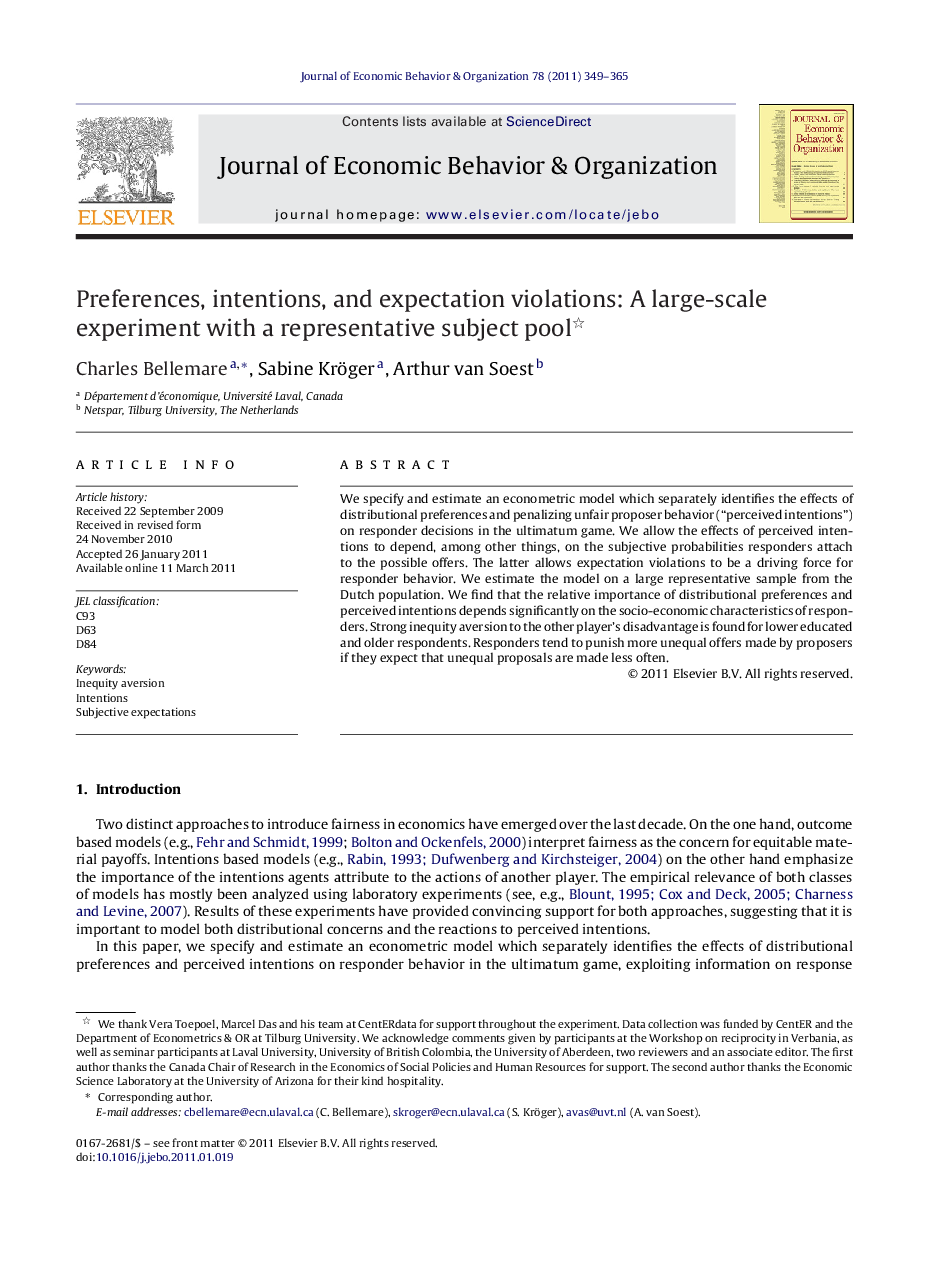| Article ID | Journal | Published Year | Pages | File Type |
|---|---|---|---|---|
| 884013 | Journal of Economic Behavior & Organization | 2011 | 17 Pages |
We specify and estimate an econometric model which separately identifies the effects of distributional preferences and penalizing unfair proposer behavior (“perceived intentions”) on responder decisions in the ultimatum game. We allow the effects of perceived intentions to depend, among other things, on the subjective probabilities responders attach to the possible offers. The latter allows expectation violations to be a driving force for responder behavior. We estimate the model on a large representative sample from the Dutch population. We find that the relative importance of distributional preferences and perceived intentions depends significantly on the socio-economic characteristics of responders. Strong inequity aversion to the other player’s disadvantage is found for lower educated and older respondents. Responders tend to punish more unequal offers made by proposers if they expect that unequal proposals are made less often.
Research highlights► We measure the effects of distributional preferences and perceived intentions on responder decisions in the ultimatum game. ► We allow expectation violations as a possible determinant of the reaction to intentions. ► The importance of distributional preferences and perceived intentions depends on socio-economic variables.
